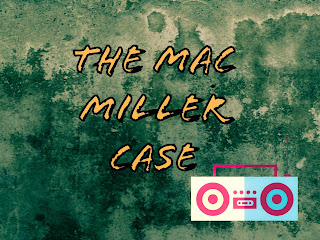Diversion Courts: A Second Analysis of Coercive Treatment
Diversion courts are the epitome of false treatment and
stupid plans that ruin the criminal justice system’s rehabilitation efforts. The idea of what most diversion courts
attempt to implement is a great idea, however the negligence of the practitioners
and idiotic treatment agendas make no sense to a reasonable person who has an
external view of the routine practices.
Putting the “success” cases to the side, this blog is an extension of my
second blog (The ‘Wannabe’ Criminal Justice System) that describes how the
social workers and diversion contrivances use duress to "rehabilitate" criminal
offenders. Also, the reason this
blog has been produced is due to recent observations and discussions in my
educational activities. Once again, the
criminal justice community has shown me their blatant disregard for logic and
in turn made themselves look like a posse that runs on dumb decisions and
prejudiced thinking.
First,
let’s look at the idea of the diversion courts’ rehabilitation processes. When a criminal offender enters a diversion
program there is a conceptualization about rehabilitation, an idea that a
person can change and live a productive life.
However, many people forget that if the treatment is not conducted in a
manner that meets the standards of the professionals who are involved with the
court then the once established punishment can be reinstated. This idea of hanging a punishment over an
offender’s head is a terrible way to get them to conform. Using duress to gain an expected result is
outrageous, why would an offender reject or not conform to the diversion
program’s standards with this possibility scratching them on back? Really? No one else thinks that this is a
form of perverse control or a way to get social power? Moreover, the treatment tactics that are
involved with most diversion programs are quite unrealistic, again, by
observing recent diversion programs I have noticed how many people were sent to jail
because they missed an hour meeting at the local treatment facility (which
was a lot of people). Sending a person
to jail or invoking some other punishment because a person missed a useless
meeting is the opposite of corrective behavior.
Second, it’s not plausible to suggest that all treatment programs/meetings
are useless, but when a person misses an appointment because of a legitimate
reason (work, school, family issues, transportation problems) then this turns
into a treatment agenda that has no therapeutic properties. Basically, it’s a
bunch of crap to scare an offender into doing what others want them to do
(duress). Third, the idea that a social
worker can act as an attorney is another mind blowing fallacy of diversion
programs. How does a person who
specializes in some type of social service take on the role of a qualified
attorney during a legal proceeding? In most cases they have no credentials do
such, which means that they do not know what they are doing! Another fallacy of making a person sign away
their constitutional rights in diversion courts (they get shitty or no
representation).
Overall,
diversion courts are a great idea and can work if they are properly administered,
but serious reconsideration has to be done in regards to the procedures in
which these programs operate on. Every person
makes mistakes, apparently criminal justice professionals too, but the idea of
using coercion to treat a behavior or form of wrongful thinking is the opposite
of treatment. Again, it is duress and
coercive tactics that are used to get an offender to conform to the “treatment.” Please don’t be angry, it’s the truth! Or maybe
it should make you angry.


Comments
Post a Comment